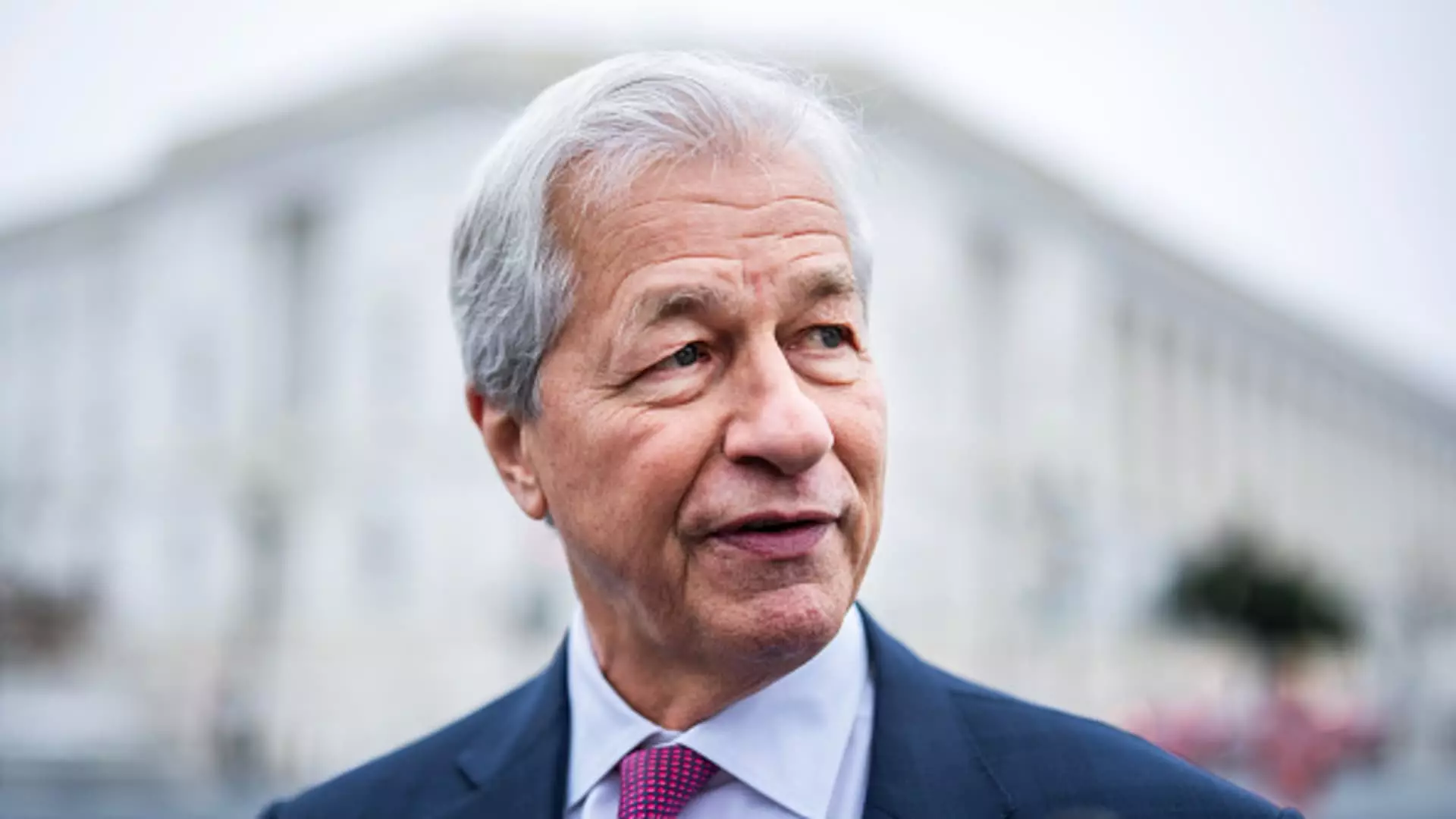In a recent interview, Jamie Dimon, the CEO of JPMorgan Chase, voiced critical opinions regarding the U.S. government’s operational efficacy. His remarks come at a time when the Trump administration is actively laying off thousands of federal employees and attempting to disband vital agencies, such as the Consumer Financial Protection Bureau (CFPB). Dimon was responding to a question posed by CNBC’s Leslie Picker about Elon Musk’s Department of Government Efficiency (DOGE). While he refrained from giving a straightforward endorsement, he openly acknowledged the necessity for substantial improvements within the government framework.
Dimon was clear in his assessment: he believes that the government is plagued by a significant level of inefficiency and incompetence that requires urgent attention. He remarked, “It’s not just waste and fraud, it’s outcomes,” underlining his concern that the federal government isn’t meeting the expectations of its citizens. This view resonates with a growing public sentiment regarding government effectiveness, particularly as agencies undergo scrutiny for their expenditures.
Speaking on the administration’s initiatives to rein in spending, Dimon advocated for a critical evaluation of government funding. Rather than simply focusing on balancing the budget, he emphasized a need for a thorough examination of whether taxpayer money is yielding beneficial results. “Why are we spending the money on these things? Are we getting what we deserve?” he posited, suggesting that discussions about the budget should involve deeper inquiries into existing policies and procedures.
Dimon’s insights underscore a broader dialogue about the governance structure and its accountability. His advocacy for “the right policies” might resonate with citizens frustrated by bureaucratic failures that hinder effective public service delivery. The emphasis on outcomes rather than merely reducing the deficit sheds light on a more comprehensive understanding of governmental performance.
Discussing the potential implications of Musk’s DOGE, Dimon acknowledged that if the initiative attempts to implement drastic cost-cutting measures or strays into illegal territories, judicial systems would likely intervene. This statement highlights his cautious optimism regarding reformative efforts, suggesting he does not entirely dismiss the experiment despite its uncertainties. His hope for DOGE’s success reflects a longing for innovative solutions to age-old bureaucratic dilemmas.
In addition to his comments on government inefficiencies, Dimon addressed several pressing issues relevant to the banking industry and society at large, such as his company’s advocacy for regular in-office work, insights on international conflicts like the situation in Ukraine, and his perspectives on tariffs that affect the economy. His leadership stance emphasizes a blend of practicality and accountability, resonating with both corporate and social responsibility.
Jamie Dimon’s critique of the U.S. government serves as a crucial reminder of the need for ongoing reform in public institutions. His call for efficiency and accountability reflects larger societal expectations as the landscape of government continues to evolve. With leaders like Dimon advocating for systemic changes, there lies a potential pathway for future improvements that could ultimately benefit both the government and its constituents.


Leave a Reply